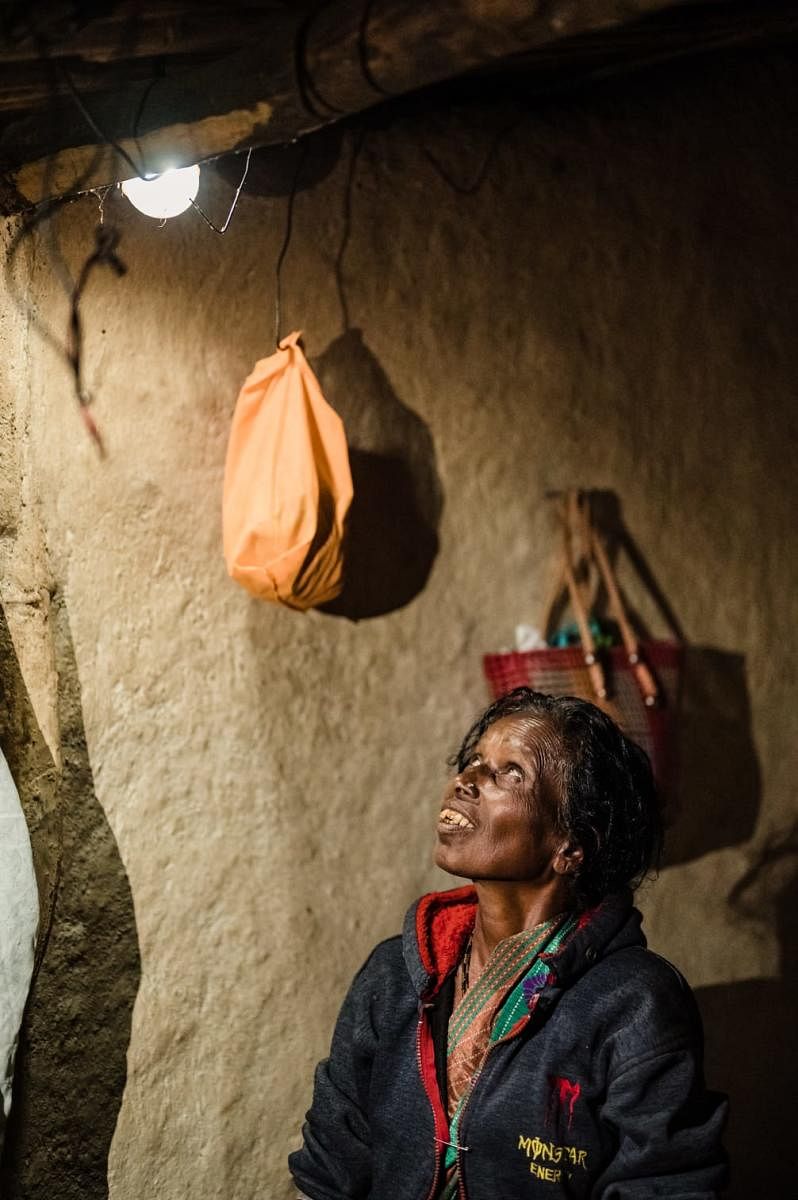Solar power for MM Hills

Many of the tribal people living deep inside MM Hills still use oil lamps in their homes. Their children studied under this light; they had to travel to the nearest village and pay Rs 20 to get their cell phones charged.
But this has now changed. Close to 150 houses in the tribal hamlets of Mendere, Medagnane, Alambadi and Kalyani Podu in the MM Hills belt have been powered by solar lighting, thanks to the initiative of a few NGOs.
These houses have been provided lighting under the 'The #LightTheNation' initiative, run by Karmodaya, in partnership with Hope Society and The Good Quest Foundation. Other states will have different partners.
The NGOs spotted these hamlets during their Covid relief work in these places where they provided dry ration kits, oxygen concentrators and medical kits to the healthcare centres opened exclusively to treat people from the indigenous settlements.
"It was during our visits that we realised that you cannot create any permanent fixtures or infrastructure in the jungle as per the Forest Conservation Act. This deprives these people of basic facilities. Their houses are not electrified and they survive on oil lamps, firewood, kerosene lamps and candles," says Vinod Kumar, founder and managing trustee of The Good Quest Foundation.
While these 150 houses were a pilot project, the initiative will be extended to provide solar lighting to at least 4,000 houses under this scheme.
The biggest challenge when carrying out this project was accessibility. There were no roads leading to these villages and one had to negotiate rocky paths to reach the destination.
"Transporting solar kits was a logistical nightmare. We used four-wheel drive vehicles wherever we could and a major part of the last mile travel was covered on foot. Climbing the hills, walking down the valleys and crossing the streams was a challenging experience," adds Vinod.
"The good quality of the solar lighting kit, with a life expectancy of 5 years and with a two-year warranty, ensures that lights work during the rain as well," says Sree Sreedhar, president, Karmodaya.
Ramya, a class nine student, walks to her school on the Tamil Nadu border. "I try to complete my studies during the day before dusk because after that I have to study using candle light and my eyes hurt. Now, with solar lights, I can study longer hours and read clearly," says Ramya.
"Solar energy is indeed a sustainable solution and a cost-effective renewable source of energy. However, it calls for regular maintenance and service," Sreedhar adds.
This is not a government-funded project, says Fr George Kannanthanam, Director of Hope Society.
But the government's help and assistance was taken for the coordination, zeroing down on the beneficiary list and in getting relevant permissions. "This is entirely funded through funds raised by Karmodaya and we hope to replicate this initiative to more villages," adds Fr Kannanthanam.
Deccan Herald is on WhatsApp Channels| Join now for Breaking News & Editor's Picks